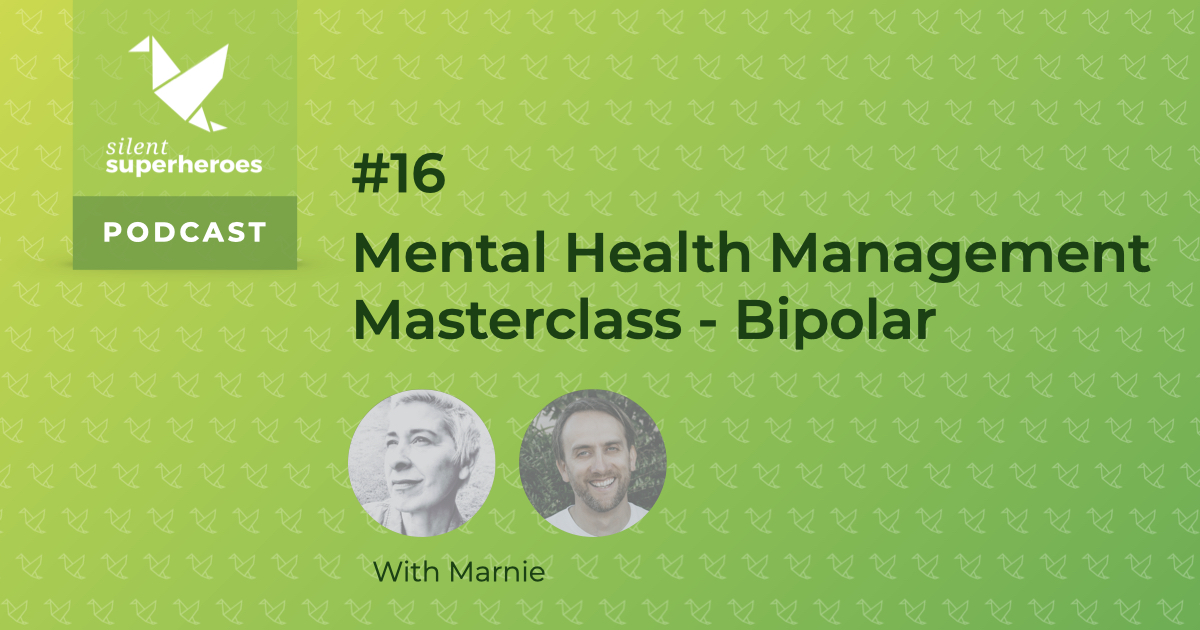Marnie works at Expedia helping teams tell stories, which she describes as her dream job. Like me, Marnie lives with bipolar disorder and focuses on her mental health management. Before her diagnosis, Marnie went through two marriages and divorces before an offhand comment in an acting class nudged her to explore her mental state.
Listen To Episode 16
Podcast: Play in new window | Download (Duration: 46:01 — 24.3MB)
Show Notes
In this episode of Silent Superheroes, Marnie shares what her acting teacher said that lead her to her bipolar diagnosis. Marnie explains her process for identifying the side effects of medication. We have fun role playing how a manager or HR professional should handle a conversation with an employee with mental illness about mental health management. And in addition to that, she reflects on the positive and negative ways the mania part of her bipolar has affected her career.
Please note, due to an equipment problem there are occasional audio dropouts in this episode. As a result of this, words are occasionally inaudible or a bit garbled.
Links
About Bipolar
Bipolar disorder is a mental health condition that causes extreme mood swings. Those mood swings include emotional highs called mania or hypomania, and lows called depression. Bipolar disorder has also been called manic depression.
When depressed, bipolar patients may feel sad or hopeless and lose interest in most activities. Then, when a patients mood shifts to mania or hypomania patients may feel euphoric, full of energy or unusually irritable. Swinging between moods can affect sleep, energy, activity, judgment, behavior and the ability to think clearly.
Although bipolar disorder is a lifelong condition, patients manage mood swings and other symptoms by following a treatment plan. In most cases, bipolar disorder can be treated with medications and psychological counseling.
Getting Support
Remember, the people you hear on Silent Superheroes are sharing their opinions about mental health and mental illness. They are not giving advice. For that reason, please consult with your care provider before making a change to your treatment approach.
It’s important to take your mental health seriously. Consequently, if you need to speak to someone you can call 1-800-273-8255, or text crisistextline.org on 741741. Both provide 24×7 confidential counseling to people in the United States. Worldwide visit http://iasp.info/resources/Crisis_Centres/
Because you listened to the podcast, you can help others find it by leaving us a review on iTunes. Or if you don’t use iTunes, leave a review on your favorite podcasting service.


